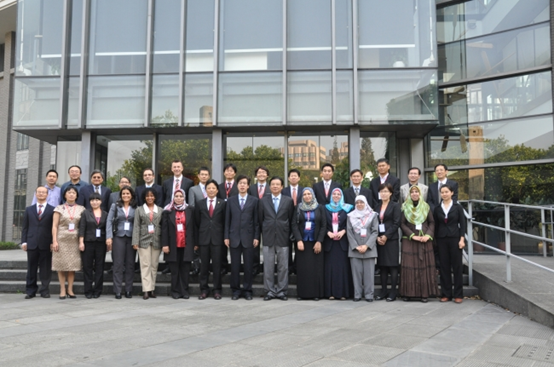On October 17, 2011, training program for patent examiners from eight countries of the European Union like Denmark and Spain as well as from Japan and South Korea was held in our university. Zhao Xiyuan, deputy director of the Ministry of Education of the SIPO, Hong Yongqing, deputy director of the Shanghai Intellectual Property Office, Dong Qi, vice president of the university, and the leadership team of the law school attended the opening ceremony.

On behalf of Tongji University, President Dong welcomed the arrival of scholars and guests. He said that intellectual property is an increasingly important worldwide topic. In recent years, the development of intellectual property rights is undergoing profound changes. It is becoming a strategic resource for countries to enhance national economic, scientific and technological strength and international competitiveness, and to safeguard their own interests and economic security. The trend of intellectual property internationalization is accelerating, and intellectual property rights between countries become an important part of technology, economy, trade and cultural cooperation . Therefore, today we are able to come together and discuss intellectual property related issues with great significance. Zhao Xiyuan delivered a speech on behalf of SIPO. He hoped that all the students would study hard and have a profound exchange at Tongji University and jointly promote the international exchange and cooperation of the Intellectual Property Office.
The training course was jointly sponsored by SIPO and Law School of Tongji University. Tongji University is responsible for the first phase of learning and training tasks. SIPO is responsible for the training tasks in the patent examination stage. The training mission was initiated by the US Patent and Trademark Office (USPTO), the European Patent Office (EPO), the Japan Patent Office (JPO), the Korean Patent Office (KPO) and SIPO (SIPO), and invited some developing countries to join in order to promote the coordinated development of international intellectual property matters. More than 20 patent examiners from eight countries received training. This is also an important step in the promotion of internationalization of the University of Law/Intellectual Property College, which laid a good foundation for the smooth development of the College's international double-degree program.




